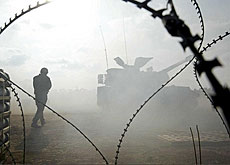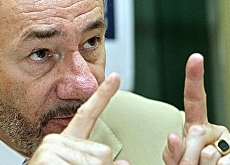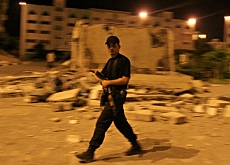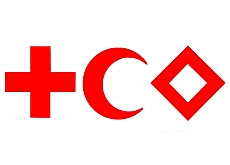Swiss satisfied with UN resolution on Israel

The new Geneva-based United Nations Human Rights Council has passed a resolution deploring Israel's military operations in the Palestinian territories.
Although a Swiss bid to name Palestinians militants in the text failed, Swiss diplomats at the UN said their proposals had helped produce a more balanced wording.
By a vote of 29 to 11 with five abstentions, the council approved a resolution decrying Israel’s actions as a breach of international humanitarian law.
The final text was proposed by the 57-member Organization of the Islamic Conference (OIC) after it was amended to suggest the Palestinians also had a responsibility to refrain from violence against civilians.
However, Israel’s ambassador Itzhak Levanon commented that it was “absolutely unacceptable” that the resolution only named Israel.
Switzerland, one of the five countries that abstained in the vote, had proposed amendments saying armed Palestinian groups should also be called to account in the resolution.
But the council accepted instead a more vague Islamic conference amendment.
Respect rules
This urged all concerned parties to respect the rules of international humanitarian law, to refrain from violence against the civilian population and to treat under all circumstances all detained combatants and civilians in accordance with the Geneva Conventions.
Switzerland is the depositary state of the conventions, which set the standards for international humanitarian law.
The council agreed to send a fact-finding mission to the Palestinian territories to report back urgently on alleged rights violations by Israel.
The decision was taken by a majority vote at the end of a two-day special session called by the OIC.
“It [the council] decides to dispatch an urgent fact-finding mission in the occupied Palestinian territories,” the resolution said.
Swiss criticism
Switzerland’s ambassador to the UN in Geneva, Blaise Godet, had on Wednesday criticised both Israel and the Palestinian militants before the council.
Godet argued that Israeli military operations in the Gaza Strip to liberate an Israel soldier captured by Palestinians on June 25 were “out of proportion”.
He noted that humanitarian rules had to be respected by all sides in a conflict and therefore condemned the launching by Palestinians of Qassam rockets into Israeli territory and last month’s assassination of a young Israeli settler in the West Bank.
The council’s special session was called after a request by 21 mainly Muslim and Arab council member states.
In a related development, the Swiss Federation of Jewish communities has criticised the Swiss foreign ministry for its position which it claimed singled out Israel for the worsening of the situation in the Middle East.
A letter sent to sent to the Swiss foreign minister, Micheline Calmy-Rey, argued remarks made in her ministry’s press statements were “very unfair” and did not “advance the cause of peace”.
In a communiqué on Monday the ministry had accused Israel of being the “occupying power” that should respect humanitartian law in its efforts to liberate its captured soldier.
swissinfo with agencies
In the first special session since its creation, the UN Human Rights Council has deplored Israel’s military operations in the West Bank and Gaza Strip as breaching international humanitarian law.
The vote was 29 to 11, with five abstentions (including Switzerland).
Israel called the session “a planned an premeditated” attack on his country, and said it continued the anti-Israeli bias set by the discredited UN Human Rights Commission.
The Geneva Conventions and their additional protocols are part of international humanitarian law that contain the most important rules governing the barbarity of war.
They protect people who do not take part in the fighting, for example civilians, medical personnel and aid workers, and those who can no longer fight such as the wounded, sick and prisoners of war.
More than 190 states have adhered to the conventions – that’s almost every country in the world.

In compliance with the JTI standards
More: SWI swissinfo.ch certified by the Journalism Trust Initiative



You can find an overview of ongoing debates with our journalists here. Please join us!
If you want to start a conversation about a topic raised in this article or want to report factual errors, email us at english@swissinfo.ch.